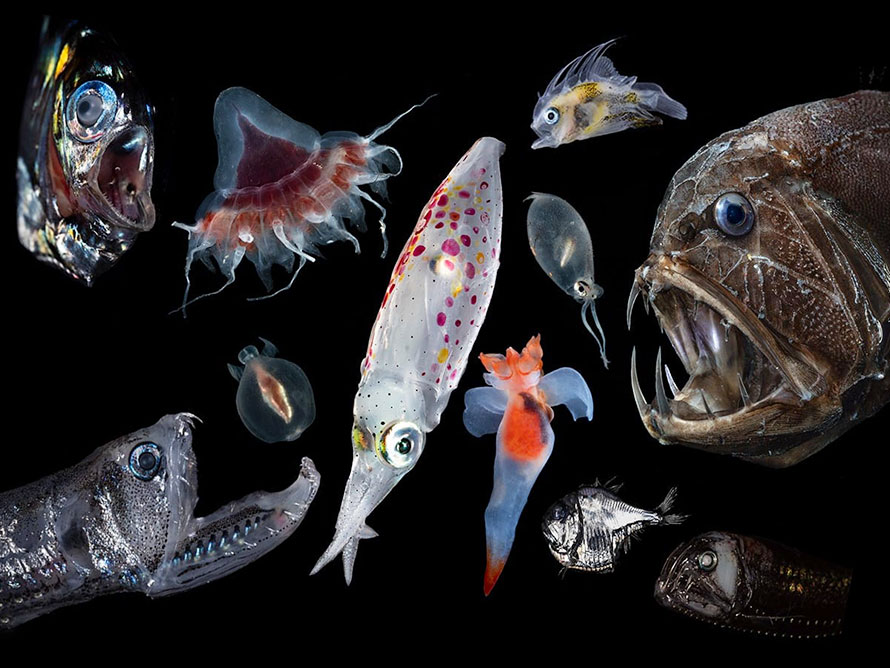Is deep sea research more important than space exploration? “No!” says Elon Musk, despite a rocket crash this week. “Yes!” say scientists racing to map the mysteries of the deep. In a remote corner of the Texas wilderness this Wednesday, a crowd waited with baited breath as they watched the rocket soar into the skies. For five tense minutes, the sleek steel Starship climbed to dizzying heights over the Gulf of Mexico. But then something extraordinary happened – the rocket tipped sideways and began to fall. As quickly as it had risen, the spaceship hurtled downwards. Within seconds, it exploded into the earth, a huge fireball lighting up the sky. The entire flight lasted less than seven minutes. It may have looked like a catastrophe, but Elon Musk, the maverick entrepreneur behind SpaceX, was delighted. It was not a crash, he insisted, but rather a “rapid unscheduled disassembly” after a successful data mission. Indeed, as the dust settled over Texas, he declared triumphantly: “Mars, here we come!” Yet, as Elon Musk sets his sights on the stars, some experts are warning that we need to pay more attention to what is happening here on Earth. Since the dawn of space exploration, NASA has sent man to the moon, mapped almost all of Venus and even found underground lakes on the Red Planet. In 2018, governments worldwide spent £80bn on space activities. Yet for sociologist Amitai Etzioni, space is overhyped. “Deep space – NASA’s favourite turf – is a distant, hostile and barren place, the study of which yields few major discoveries,” he wrote in 2014. “By contrast, the oceans are nearby, and their study is a potential source of discoveries that could prove helpful for addressing a wide range of national concerns from climate change to disease.” Scientists’ understanding of the deep ocean remains astonishingly vague. When flight MH370 vanished in 2014, the world was baffled – how could an entire plane disappear under the sea? But now deep sea scientists are racing to fill the gaps in their knowledge. In 2017, only 6% of the ocean was accurately mapped. Today, despite unprecedented challenges, that figure stands at 20%. And while aliens remain firmly in the realm of science fiction – for now – there is no shortage of new life being discovered in the deep. Just last year, Australian researchers combing the abyss beneath Antarctica found dozens of “extraordinary” creatures 4,000m below the ice – including zombie worms and meat-eating sponges. But experts warn that exploring the ocean is about more than just satisfying our curiosity. The ocean is critical to human life – it controls our weather, provides the oxygen we breathe and adds $1.5tn each year to the economy. Now, it is under threat. When an American explorer broke the record for the deepest human submarine dive ever last year, he found a plastic bag at the bottom of the Mariana Trench. One renowned oceanographer has issued a stark warning. “Far and away, the biggest threat to the ocean is ignorance,” says Sylvia Earle. “But we can do something about that.” So, is deep sea research more important than space exploration? Final frontier Definitely, say some. It is shocking that we know more about outer space than we do about our own planet. As OceanX founder Ray Dalio says,:“the ocean remains humanity’s most important, and most under examined, treasure.” The sea is vital for maintaining human life as we know it, but it is under threat. And if we do not understand how the ocean works, we cannot protect it. Not at all, say others. There is a reason why space exploration has commanded so much attention and resources – it has led to great advancements in technology, medicine, the economy and even our understanding of our place in the universe. And a deep sea dive could never inspire such feelings of wonderment and amazement as a human walking on the Moon or, maybe one day, Mars. KeywordsSpaceX - Founded in 2002 by South African entrepreneur Elon Musk, SpaceX's mission is to reduce the cost of space transportation to make possible the colonisation of Mars.
Is deep sea research more important than space exploration? "No!" says Elon Musk, despite a rocket crash this week. "Yes!" say scientists racing to map the mysteries of the deep.
Final frontier
Keywords
SpaceX - Founded in 2002 by South African entrepreneur Elon Musk, SpaceX's mission is to reduce the cost of space transportation to make possible the colonisation of Mars.
Challenges - Challenges are hard or tough things that someone must overcome.
Mariana Trench - The Pacific Ocean trench is the deepest oceanic trench on Earth. It is nearly 11,000 metres deep.
Found! Zombie worms and meat-eating sponges

Glossary
SpaceX - Founded in 2002 by South African entrepreneur Elon Musk, SpaceX's mission is to reduce the cost of space transportation to make possible the colonisation of Mars.
Challenges - Challenges are hard or tough things that someone must overcome.
Mariana Trench - The Pacific Ocean trench is the deepest oceanic trench on Earth. It is nearly 11,000 metres deep.
